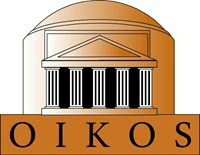The return of the Golden Age is one of the most pervasive and perennial motifs in western culture. It has been used to articulate an enormous range of different convictions, and to support a bewildering variety of political, religious and artistic causes. The classic formulation of the theme in Virgil’s fourth Eclogue, and the reappearance of this concept in praise of the emperor Augustus in the Roman poet’s Aeneid, meant that the returning Golden Age was very frequently harnessed to assert claims to imperial power, or to bolster other authoritarian regimes. But an awareness of this heritage also made evocation of Virgil’s lines an effective tool for expressing opposition on the part of those who subscribed to other ideologies or served competing political interests. This paper sets examples of the appropriation of the fourth Eclogue for the purposes of panegyric alongside receptions of the poem which seek to resist or undermine individuals or institutions which were widely known for their adoption of the theme of the returning Golden Age as a vehicle for political propaganda or other forms of self-assertion. The long tradition of Virgilianising encomium featuring acclamations of temporal renewal stretches from Virgil’s own day to (at least) well into the twentieth century; but alongside it runs another current, the deployment of the same language and imagery to deflate or disparage claims to progress, regeneration and dominion. Here we will see a few snapshots, from a range of historical periods and in a variety of media, illustrating the exploitation of this endlessly recycled motif to serve each of these conflicting ends.
About the speaker
Luke Houghton is Tutor in Classical Greek and Latin at Royal Holloway, University of London, and Honorary Research Fellow of the Department of Greek and Latin at University College London (UCL). He is an expert in the field of Latin poetry and its reception in later art and literature. In 2019 he published the monograph Virgil’s Fourth Eclogue in the Italian Renaissance with Cambridge University Press. He further co-edited Perceptions of Horace (2009), Neo-Latin Poetry in the British Isles (2012), and Virgil and Renaissance Culture (2018).
Organised in collaboration with the OIKOS Anchoring Innovation work package ‘Reception of Antiquity’ and
the OIKOS research group ‘Classical Receptions and Traditions’.








